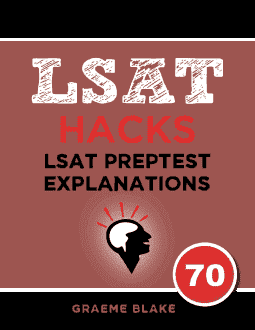QUESTION TEXT: Detective: People who repeatedly commit crimes like…
QUESTION TYPE: Necessary Assumption
CONCLUSION: Most people that embezzle or commit bribery will be caught.
REASONING: The more times you commit a crime, the more likely you are to be caught.
ANALYSIS: The first two sentences are just filler. The key here is that the more times you embezzle, the more likely you are to be caught.
There's a problem though. The argument doesn't say whether embezzlers will continue embezzling. Just because someone is confident doesn't mean that they will keep committing crimes. The conclusion is that most embezzlers will be caught, but maybe most people embezzle once and then drop it.
Note: this is a rare case where a “most” answer is correct on a necessary assumption question. Negating “most” moves from 51% to 50%, which isn't normally logically significant. But the conclusion of this argument was about “most” embezzlers.
___________
- CORRECT. If most people don't embezzle repeatedly, then the detective's evidence doesn't support his argument. It's still possible that most embezzlers would be caught (say, on the first try). But they would not be caught because of the reasoning in the detective's argument. That's why this is necessary to the argument.
Negation: Half or less of those who embezzle do so repeatedly. - Confidence was just a sideshow to the argument. The main point is that the odds of being caught go up as the criminal commits more crimes.
- The conclusion is simply that most embezzlers will be caught. Other crimes don't matter – who care if it's even easier to catch car thieves?
- This doesn't have to be true. Maybe even careful repeat offenders have patterns that make it easy to catch them if they embezzle often enough.
- The conclusion is that most embezzlers would be caught. So the argument would be stronger if some embezzlers were caught the first time!


Leave a Reply